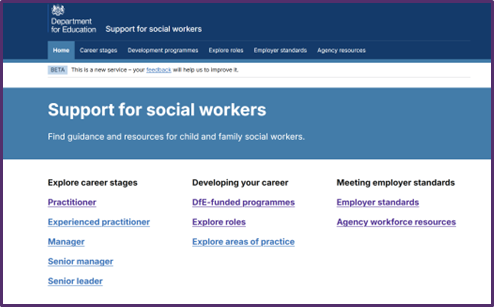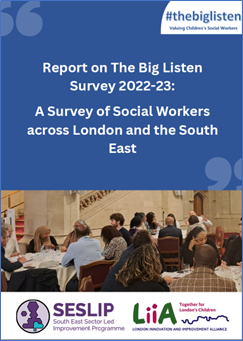All 19 local authorities in the region have pledged their support to this approach and the MoC is now operational.
Councils in the region have recognised that competing with each other to recruit social workers has become counter productive and has contributed to the increased reliance on agency staff and escalating costs.
The Memorandum of Cooperation aims to ensure a more collaborative approach to recruiting social workers and to the employment of agency staff, when necessary, making it harder for agencies to persuade social workers to leave their permanent post with a local authority.
A new approach to recruitment will be taken, with local authorities devising their own recruitment campaigns to attract quality social workers in to their permanent employ, rather than commissioning recruitment agencies to ‘head hunt’ social workers and managers. The aim of this is to increase stability in the workforce and reduce the incentives for staff to repeatedly move between authorities.
Through the Memorandum, work is also being undertaken to improve the quality of agency staff. There are many reports of poor quality agency workers moving frequently between authorities. The Memorandum agrees a new standardised approach to references that will help to ensure better shared communication between authorities and, in turn, improve the quality and accountability of agency social workers and managers.
The Memorandum of Cooperation was relaunched on 1 April 2022
The Memorandum contains four key measures:
- An agency pay cap to stop pay rates from escalate as authorities paying higher and higher hourly rates
- Agreement to refrain from aggressive head hunting
- A standardised approach to references for agency staff
- A six month “cooling off” period for permanent staff moving to agency work
The Memorandum also contains an agreement that signatory authorities will not employ social workers as agency staff, if they were permanent as members of staff elsewhere
Launch of resources to support new agency social worker guidance and employer standards
On 31 October, DfE published resources to support new agency social worker guidance and employer standards
Developed by Research in Practice, Essex County Council and King’s College, London with the invaluable support of local government, the resources aim to support:
- The implementation of new statutory guidance for child and family agency social workers.
- Employers to meet the standards for employers of social workers.
Hosted by the Local Government Association, the standards set out what employers are expected to do to support social workers.
Research in Practice said: “We are pleased to annnnounce the launch of new resources and tools to support employers to meet the employer standards and the implementation of the statutory guidance on the use of agency child and family social workers.
“The resources have been developed with your invaluable input, and aim to support:
- Employers to meet the standards for employers of social workers.
- The implementation of new statutory guidance for child and family agency social workers.
“Hosted by the Local Government Association, the standards set out what employers are expected to do to support social workers. The resources include a summary of the research evidence related to each standard, and some useful tools and resources for employers to use to support meeting the standard.
“The agency workforce resources should be useful to regional improvement and innovation alliances in considering their readiness to meet the new agency rules. The tools and resources will support planning to comply with the statutory guidance. Workforce leads are encouraged to use the resources and share their experience with the Department for Education.
“Please share these resources with colleagues, and grateful thanks for contributing to this project – involving the wider sector in resource development is an extremely important part of our work.
The Big Listen Report
On June 30 2023, SESLIP and LIIA published a Report on The Big Listen Survey 2022-23
The Big Listen is an ambitious research project undertaken collaboratively between 52 local authorities in London and the South East. The research sought to listen directly to frontline social workers and managers through a combination of focus groups attended by over 150 people and a survey completed by over a 1,000, representing more than 8% of all social workers/managers in both regions. The research also looked at a range of other sources with the aim of bringing together the best possible evidence to help inform and develop a regional workforce strategy.
The report is detailed and includes an accessible short executive summary. Authorities who contributed to the research by getting more than 25 of their staff to participate will also be provided with an individual authority level report.
Key findings from the research will be presented at the next regional DCS Meeting (21st July) where discussion will focus on how the research can be used to contribute to developing a comprehensive South East regional work force plan.
For more information please contact Mark Evans (contact details below)
Governance & Reports
The Memorandum of Cooperation has a governance body constituted of representative DCSs, Assistant Directors Safeguarding and HR Partners.
The following Local Authorities have agreed to implement the new MoC for managing the demand and supply of Children’s Social Workers from 1st April 2022:
Signed MoC Approvals
- Bracknell Forest Council
- Brighton and Hove City Council
- Buckinghamshire County Council
- East Sussex County Council
- Hampshire County Council
- Isle of Wight Council
- Kent County Council
- Medway Council
- Milton Keynes Council
- Oxfordshire County Council
- Portsmouth City Council
- Reading Borough Council/Brighter Futures for Children
- Slough Borough Council (Slough Children First)
- Southampton City Council
- Surrey County Council
- West Berkshire Council
- West Sussex County Council
- The Royal Borough of Windsor and Maidenhead (Achieving for Children)
- Wokingham Borough Council



